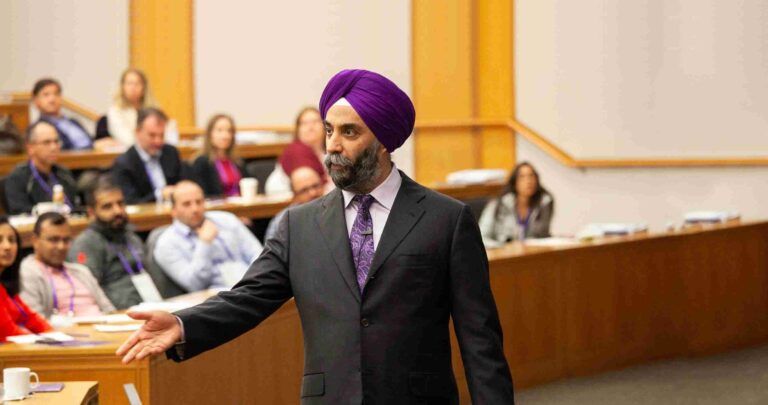5 Important Reasons Why Your Company Needs a Fractional CTO

- What is a Fractional CTO and How Does it Differ From a Full-Time CTO?
- How Can a Fractional CTO Benefit a Company’s Tech Strategy?
- What are the Typical Responsibilities of a Fractional CTO?
- How Can Companies Find and Hire a Qualified Fractional CTO?
- What Cost Savings Can a Company Expect by Hiring a Fractional CTO?
- Advance Your Career With Emeritus
Technology has been the defining feature of the 21st century. It is the backbone of almost every organization, especially businesses. Tech spending as a percentage of revenue has increased from 3.28% in 2016 to 5.49% in 2023, as per Deloitte’s 2023 Global Technology Leadership Study. As a result, there is a rise in tech leadership roles such as Chief Technology Officer (CTO) Chief Information Officer (CIO), and Chief Data Officer (CDO), among others. For instance, 51% of organizations surveyed by Deloitte reported having a CTO. However, it is difficult for startups and small businesses to afford someone on a full-time basis. This is where the role of a fractional CTO offers an effective solution. So, let’s shed light on the responsibilities of fractional CTOs, their value to companies, and how they can augment revenue in this blog.
What is a Fractional CTO and How Does it Differ From a Full-Time CTO?
A fractional CTO, as the name suggests, is typically a part-time or contract-based professional who is tasked with providing strategic tech leadership to a company. In other words, it is like a tech consultancy firm, working with multiple companies simultaneously. Here’s how they stack against full-time CTO:

1. Time Commitment
A fractional CTO is not a full-time employee due to which they can work for a set number of hours every week or on a project basis. A permanent chief technology officer, by the very definition of the term, is a C-suite leader of the organization.
2. Cost
A fractional CTO is an affordable option because they work on a project basis and charge for a limited amount of time. In contrast, a regular CTO needs a full-time salary with benefits. Thus, it is beneficial to hire a fractional CTO, especially for startup growth.
3. Flexibility
A fractional CTO offers flexibility in terms of availability and scope of work. For instance, they can customize their services according to the organization’s specific needs and budget.
4. Experience
Most fractional CTOs are experienced professionals, familiar with different industries, technologies, and company sizes. They can help bring fresh perspectives and think outside the box, whereas CTOs are limited to their companies.
5. Focus
A full-time CTO oversees the entire technology department, including strategic vision, implementation, and daily operations. On the other hand, fractional CTOs deal with strategic guidance, short-term projects, or expertise in a particular field.
ALSO READ: Top 3 Reasons Why Your Career Needs Information Technology Courses
How Can a Fractional CTO Benefit a Company’s Tech Strategy?
A fractional CTO can yield several benefits, such as startup growth, strategic guidance, and risk mitigation, among others. Let’s look at them in detail:
1. Reduces Costs
Every firm is drawn to hiring a fractional CTO because they help save money. These firms can access sophisticated expertise depending on their requirements. It is, therefore, useful in avoiding hefty salaries and bonuses of CTOs as you only pay for a limited number of hours.
2. Refines Strategy
A small firm can leverage a fractional CTO’s experience of having worked across different industries to define a clear tech vision. They know how to understand the tech landscape, identify areas for improvement, and develop a clear roadmap for the firm.
3. Offers Scale
Fractional CTOs can easily adapt to the company’s changing needs. Their involvement can be negotiated depending on the priorities. This helps companies experiencing rapid growth, undergoing a pivot, or tackling specific tech initiatives subsequently.
4. Access Diverse Expertise
Many tech consultancy services offer professionals with expertise in various areas, such as software development, cloud computing, cybersecurity, or data analytics. In short, firms can tap into a wide range of knowledge that may not be possible with a full-time CTO.
5. Fills Leadership Gaps
Fractional CTOs allow organizations to deploy temporary leadership during critical periods like a leadership transition. Hence, they can ensure continuity and avoid potential roadblocks in their tech strategy.
6. Brings a Unique Perspective
Companies must have an outside expert as it paves the way for an objective perspective on its challenges. They question existing assumptions and recognize new opportunities that were ignored previously.
ALSO READ: What are the Technology Trends 2024 That CTOs Should Look Out for?
What are the Typical Responsibilities of a Fractional CTO?
1. Develop the Tech Strategy

It is important to have a strategy aligned with the company’s business goals. Fractional CTOs help craft and engineer this strategy by evaluating the technology infrastructure, identifying opportunities, and planning for future growth.
2. Provide Tech Leadership
Every CTO, fractional or not, must know how to guide the firm’s tech team. They must set the technical direction besides devising standards and best practices to ensure efficiency in tech operations subsequently.
3. Set up Technology Architecture
Many fractional CTOs are hired to design and maintain a company’s technology infrastructure to support its needs. They should know how to select relevant technologies, platforms, and tools and oversee system integration.
4. Promote Innovation
Fractional CTOs look after the development of technology products and solutions. They collaborate with product managers, designers, and developers to define product requirements, prioritize features, and ensure timely delivery.
5. Implement Security
They must mitigate risks such as data breaches and system failures by maintaining robust cybersecurity measures to protect the company’s data, assets, and reputation. They should also ensure compliance with relevant regulations, such as GDPR, HIPAA, or PCI DSS.
6. Build Teams
Fractional CTOs expand a technology team by recruiting, training, and retaining top talent. Moreover, they should provide mentorship, coaching, and professional development opportunities to team members looking to succeed in their careers.
ALSO WATCH: Online Course Preview | Chief Technology Officer (CTO) Program at Wharton
How Can Companies Find and Hire a Qualified Fractional CTO?
1. Identify Your Needs
Companies must clearly define the specific skills and experience before they commence their search. This clarity will help them determine an engagement model (hourly, project-based, retainer) and a comprehensive contract with proper deliverables and expectations.
2. Search Online Platforms
Several online platforms connect companies with fractional CTOs. These platforms not only vet their candidates but also enable browsing profiles based on experience, industry, and expertise. For example, searching on sites such as Toptal, Crewbloom, and ExecThread.
3. Hire Executive Search Agencies
Companies can hire agencies that specialize in introducing senior technology executives to firms in need. They have a pool of experienced candidates and handle the entire search process, from identifying candidates to negotiating with them.
4. Scour Professional Networks
It is prudent to reach out to people who have worked with a fractional CTO or know a qualified candidate. Additionally, companies can meet potential candidates at industry events, conferences, and job board listings.
5. Conduct Thorough Interviews
Lastly, firms should conduct in-depth interviews to assess the candidate’s technical knowledge and leadership skills. They can request references and case studies to understand the candidate’s past performance and approach.
ALSO READ: Top 3 Ways a Chief Technology Officer Impacts Business Strategy
What Cost Savings Can a Company Expect by Hiring a Fractional CTO?
1. Eliminates Salary and Benefits
It is quite profitable not to pay a full-time CTO’s salary. Companies also save on major expenses such as health-care benefits, retirement contributions, and other perks.
2. Minimize Recruitment Costs
It is costly and time-consuming to recruit and hire a full-time CTO. Firms can avoid advertising costs, recruitment agency fees, background checks, and relocation expenses by hiring a temporary CTO.
3. Allows Flexibility
Companies only have to pay for the hours or project costs with a fractional CTO. This flexibility can help companies circumvent the fixed salary of a full-time one.
4. Reduces Overhead Costs
Companies do not have to bother with overhead costs, such as office space, equipment, training, and recruitment expenses by engaging a fractional CTO.
5. Mitigates Risk
It is good to opt for a fractional CTO if there’s a possibility of organizational changes in the future. It allows companies to end the contract without dealing with the long-term implications of terminating a full-time CTO.
Advance Your Career With Emeritus
Many companies are looking to leverage technology to boost their growth. It is bound to increase the demand for fractional CTOs as everyone will not be looking to hire a CTO. Emeritus offers a range of technology courses curated for professionals interested in becoming CTOs. These courses cater to everyone, from experienced professionals seeking to upskill to aspiring executives keen to gain practical insights. Sign up today to gain the expertise and confidence to excel as a tech leader and catapult your career to soaring highs!
Write to us at content@emeritus.org
















